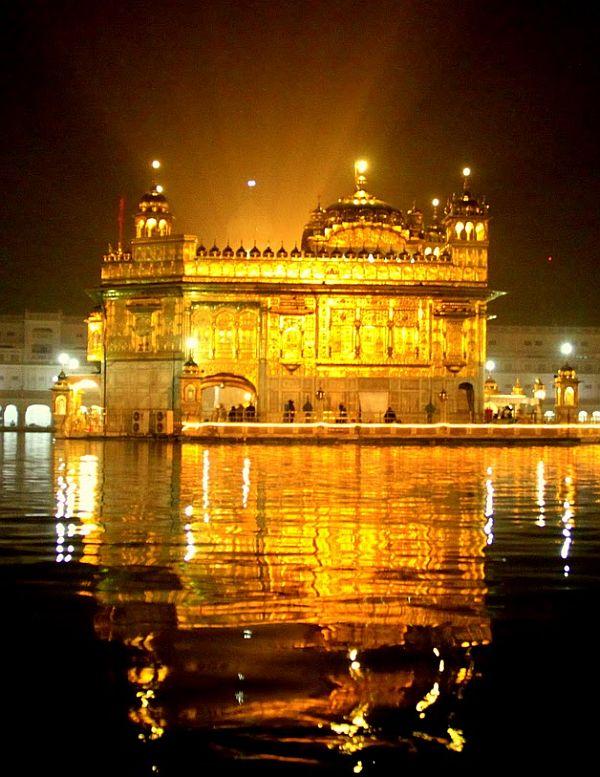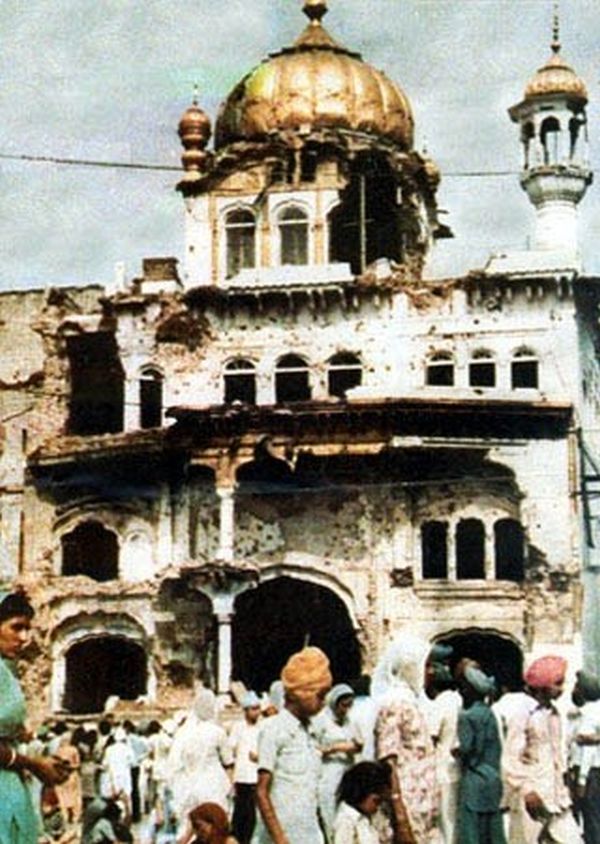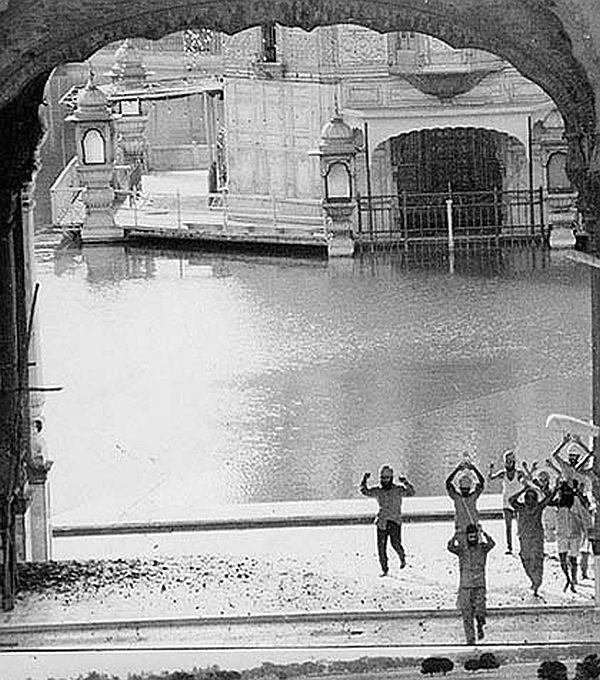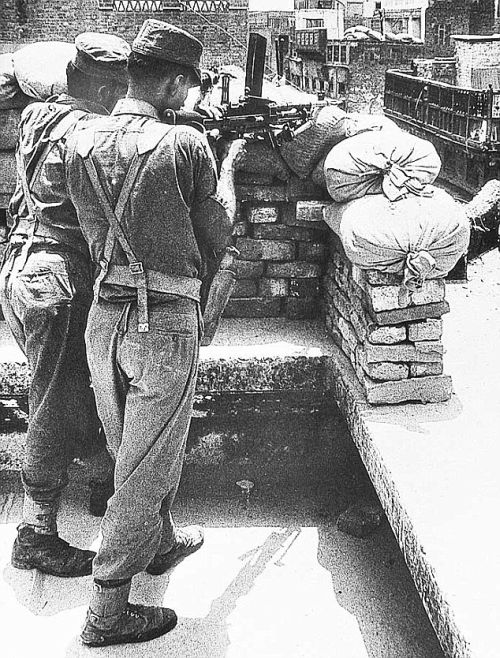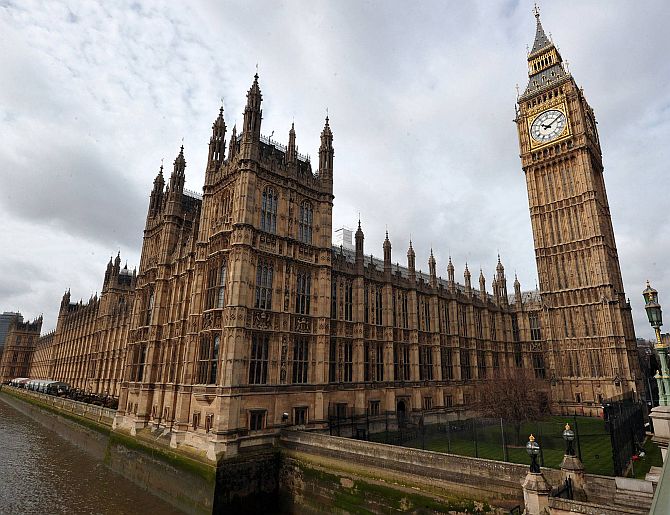 | « Back to article | Print this article |
ANSWERED: 5 questions on UK's role in Operation Bluestar
The British government has clarified that its role in the 1984 Operation Bluestar to flush out militants from the Golden Temple was "purely advisory and limited" and had limited impact.
The 12-page report that Foreign Secretary William Hague tabled in the British Parliament sheds more light on the "limited support" that his country gave India
Rediff.com brings for you key excerpts from the report:
Question # 1: What was the nature of the military advice?
"The UK military adviser was in India between 8-17 February, including a ground recce, with the Indian Special Group, of the temple complex. This was before -- and unrelated to -- the exchange of fire between Indian security forces and the occupiers of Sri Harmandir Sahib that started on February 17."
"I have seen the UK military adviser’s visit report and the assessment which he gave the Indian authorities on 13 February. It is clear from this that the purpose of the visit was to advise Indian Counter Terrorist Team commanders on the concept of operations that they were already working up for action in the temple complex, including tactics and techniques. It is the
long-standing practice of successive governments that we do not release such documents. However, I can confirm that the report makes clear that the military officer’s instructions were that no UK manpower or equipment should be offered beyond the visit of this single military adviser."
"His assessment for the Indian authorities also made clear that this type of operation should only be put into effect as a last resort when all other courses of negotiation had failed. Beyond this, it made no comment on the timing of any potential future operation."
Click on NEXT to read further...
ANSWERED: 5 questions on UK's role in Operation Bluestar
"The UK officer’s report back to the UK authorities stated that the main difference between the original Indian plan and his advice was that the original plan was based on obtaining a foothold within the south complex and fighting through in orthodox paramilitary style."
"With a view to reducing casualties, the UK military adviser recommended assaulting all objectives simultaneously, thereby assuring surprise and momentum. The advice given to the Indian authorities identified sufficient helicopters, and the capability to insert troops by helicopter, as critical requirements for this approach."
"The UK advice also focused on command and control arrangements, and night-time co-ordination of paramilitary with Indian Special Group forces."
Click on NEXT to read further...
ANSWERED: 5 questions on UK's role in Operation Bluestar
Question # 2: Why did the UK provide India with advice from a military expert?
"... this was a response to an urgent request from the Indian Intelligence Co-ordinator for expert military advice on Indian contingency plans for potential action against those occupying the temple complex."
"The recommendation and decision to agree this request were based on advice from the British High Commission that it would be good for the bilateral relationship, whereas refusal would not be understood by the Indian Prime Minister, Mrs Gandhi."
"The recommendation to Ministers was explicit that the UK government could not contemplate assistance beyond that which might be given by the military adviser. There is no evidence in the files, or from discussion with officials involved at the time, that other forms of assistance for the operation -- for example equipment or tactical intelligence -- were provided for the Indian operation."
"There does appear to have been some internal UK military consideration, immediately after the UK military adviser’s visit to India, of whether to offer training for the potential operation, if requested by the Indian authorities, and if agreed by UK Ministers. But there is no evidence in the files that any Indian request was made, or that Ministerial permission was ever sought."
"As would be expected in the normal course of bilateral relations, the files confirm that there were on-going contacts between UK and Indian officials around the time of Operation Blue Star on potential defence-related sales, including the potential sale of Westland helicopters for civilian purposes. However, there is no record linking the provision of UK military advice to the discussion of potential defence or helicopter sales; or to any other policy or commercial issue."
"The only UK request of the Indian government, made after the visit, was for prior warning of any actual operation, so that UK authorities could make appropriate security arrangements in London. In the event, the UK received no warning from the Indian authorities of the launch of the operation."
Click on NEXT to read further...
ANSWERED: 5 questions on UK's role in Operation Bluestar
Question # 3: What was the impact of the UK advice?
"The UK High Commission in Delhi reported in February that the revised plan had been approved by Mrs Gandhi. However, it was not clear to contemporary UK officials whether this referred to a revised plan drafted by Indian officials that they had edited in the light of the UK military officer’s advice, but which UK personnel had not seen; or whether Mrs Gandhi had
been shown the UK military adviser’s paper.
"Recent Indian media reports suggest the operational plan developed by the Indian interlocutors of the UK military adviser was called “Sundown”, and focused on detaining Jarnail Singh Bhindranwale, the leader of the Sikh dissidents occupying Sri Harmandir Sahib."
"There is no mention of “Operation Sundown” in UK files. Nor do those interviewed recall that name. Nor was the UK military adviser’s report of February focused on a “snatch” operation. The plan it focused on was designed to re-establish control over the temple complex." "
"It is, of course, possible that Indian planning went through several iterations after the UK military adviser’s visit and report A quick analysis by current UK military staff confirms that there were significant differences between the actual June operation, and the advice from the UK military officer in February. In particular, the element of surprise was not at the heart of the operation. Nor was simultaneous helicopter insertion of assault forces to dominate critical areas."
The paper on the operation made public by the Indian authorities on June 13, 1984 makes clear that it was a ground assault, preceded by a warning, without a helicopter-borne element, which became a step-by-step clearance supported by armour and light artillery."
Click on NEXT to read further...
ANSWERED: 5 questions on UK's role in Operation Bluestar
Question # 4: So why did Indira Gandhi ignore UK advice?
"Mrs Gandhi’s letter to Mrs Thatcher of 14 June 1984, explaining her decision to take military action against the occupiers of the temple complex complex, stated that the occupiers had been strengthening their position, that India’s paramilitary forces were insufficient in number, and so the Army had had to be sent in.
"It is also important to note that this letter made no reference to any UK assistance, suggesting strongly that this was not regarded by the Indians as being of any great significance or relevance"
"A key UK officer recalls being told in July 1984, by one of the Indian Intelligence Co-ordinator’s senior officials, that after the February visit it had emerged that the Indian Special Group and Army did not have the helicopter capabilities for a simultaneous assault."
"The decision had also been taken to sacrifice surprise by warning civilians in the complex to leave before an impending assault, in an effort to reduce casualties."
Click on NEXT to read further...
ANSWERED: 5 questions on UK's role in Operation Bluestar
Question # 5: Was the British Parliament misled on the country's involvement?
"There is no record of a specific question to Ministers about practical UK support for military operations at the temple complex, despite at least one contemporary press article alleging more sustained advisory support than was in fact provided."
"However, on July 30, 1984 the then MP for Slough, John Watts, asked the Secretary of State for Foreign and Commonwealth Affairs “what representations he has received from the Sikh community in the United Kingdom about the storming of Golden Temple in Amritsar; and what discussions Her Majesty’s Government have had with the Government of India about this incident?”. Ray Whitney, then Parliamentary Under Secretary, replied that “the Foreign and Commonwealth Office has received petitions and numerous letters from the Sikh community in the United Kingdom about recent events in the Punjab. As this is an internal Indian matter, we have not sought to discuss it with the Indian Government".”
"My view is that the Parliamentary Question and Mr Whitney’s reply were almost certainly directed at the question of UK-Indian discussions post the storming of the temple complex, and therefore in this context Mr Whitney did not mislead Parliament."
"This is reinforced by the fact that neither Mr Whitney nor his office were copied any of the relevant papers on the UK military officer’s earlier visit in February, which was treated as Top Secret."
Click on NEXT to go further...
TOP photo features you missed last week
Click on MORE to see another PHOTO feature...
